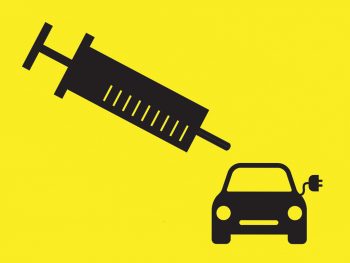UK fleets optimistic about their post-pandemic future, survey finds
A new study reveals that UK fleets are emerging from the COVID-19 pandemic with renewed confidence, as businesses feel better equipped to deal with disruption caused by COVID-19.
3 in 5 (60%) UK fleets have business strategies in place to deal with future COVID-19 disruption, including localised lockdowns and COVID-19 waves.
This has increased in comparison to last year, when less than half (39%) of businesses had plans to deal with local lockdowns and two-thirds of companies had no plans in place for a resurgence of COVID-19, according to a twin report from 2020.
The report, entitled ‘Driving Better Business Resilience After COVID-19’, was commissioned by Driving for Better Business (DfBB), a government-backed Highways England programme, and surveyed 150 SME business owners and over 150 decision-makers at board level in large enterprises. The report follows DfBB’s Better Business Resilience report in 2020, which surveyed the same organisations at the height of the pandemic.
The findings provide a comparative snapshot of the attitudes and behaviours of SMEs and large enterprises towards business resilience across the UK, tracking progress over the past year. The report demonstrates the top concerns for business leaders, information currently reported at board level, and the preparedness of UK businesses to deal with future COVID-19 disruption.
Top business concerns post-COVID-19
Half (50%) of UK businesses said that coping with additional demand as a result of lockdown was their main concern currently, as businesses across the UK seek to return to pre-COVID-19 levels of productivity.
This has doubled in comparison to last year, when less than a quarter (22%) of UK businesses shared this view. In 2020, companies were most concerned with surviving the economic disruption of COVID-19.
Fleets reporting operational activities and costs to the board
Reporting at board level has increased significantly in 2021 as businesses are reporting fleet operational activities and costs to their boards. Reporting has increased over the past year for the following key areas: Servicing and maintenance costs for company vehicles, driver behaviour, fuel spend for company vehicles, annual fleet insurance, vehicle incidents and damage repair costs, and mileage levels/costs for those using their own car for work journeys.
Half (50%) of businesses are reporting servicing and maintenance costs for company vehicles at board level. This has increased significantly since 2020, when less than a third (31%) of UK fleets were reporting servicing and maintenance costs to their boards.
The number of businesses measuring and monitoring driver behaviour to better control operational costs has more than doubled from 18% in 2020 to 41% in 2021. This demonstrates that awareness about the importance of measuring and monitoring business operations has increased over the course of the pandemic, as UK-based fleets have embraced and implemented better drive engagement strategies to improve business outcomes in the context of COVID-19.
Commenting on the findings, Simon Turner, campaign manager, Driving for Better Business said: “Today, businesses face diverse and competing challenges as we emerge from the COVID-19 pandemic. However, the challenge of remaining agile and maximising financial strength has remained a business priority for all businesses, just as it was in March 2020, and will continue to be post-COVID-19.
“In 2020, businesses were concerned about their financial strength in an uncertain economic landscape, yet were failing to track and report on fleet activity, operational costs and collision-related disruption – an activity that would lead to much more effective cost control and therefore improved resilience.
“By tracking industry progress over the past year, the results of our second business resilience report demonstrate the importance of measuring and monitoring activity to improve business outcomes, and the extent to which businesses have embraced the ways of working suggested by Driving for Better Business in order to meet the challenges posed by COVID-19. As a result, UK fleets are emerging from the pandemic with renewed confidence and optimism about their post-pandemic future.”
Commenting on the report, Gary Banister, Fleet Transformation, WM Morrison Supermarkets PLC, said: “Wm Morrison recognises the importance of Managing Work Related Road Risk and striving to improve the productivity, safety and sustainability of our drivers and fleet, both in-house and 3rd party. Commitment at Director level and collaboration with suppliers has been key to this process and we continue working with DfBB to help promote best practice within the industry.”













